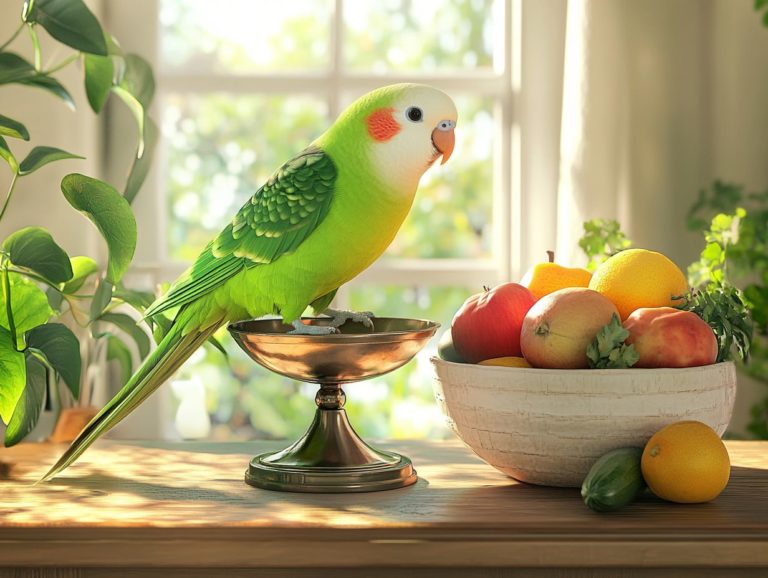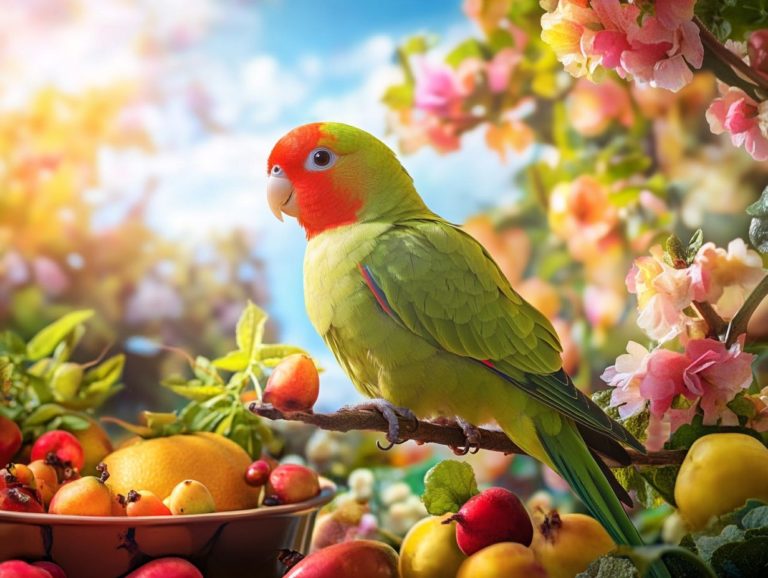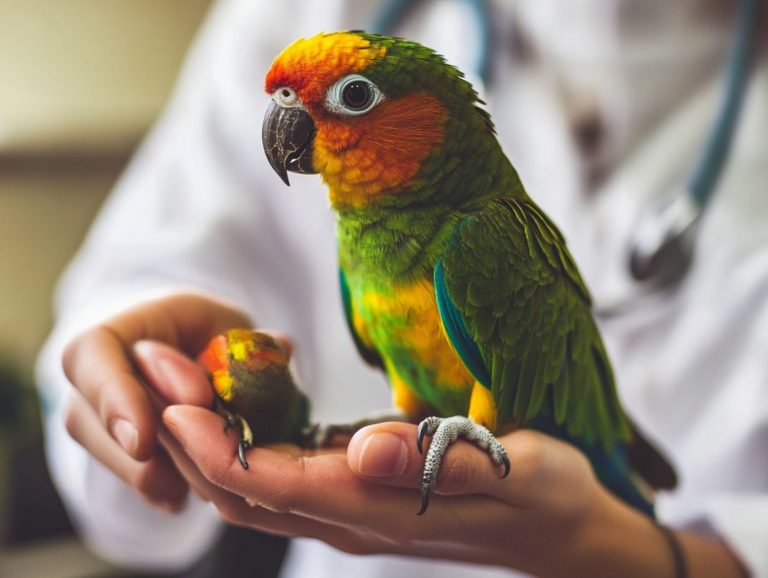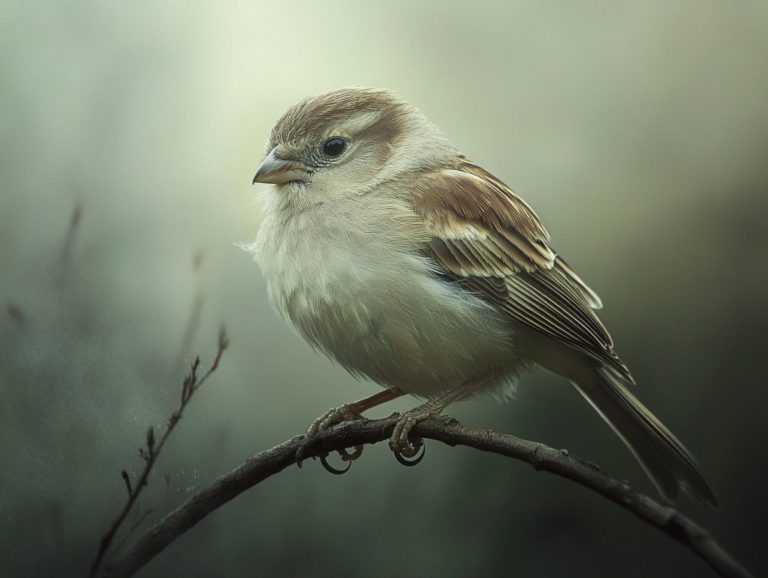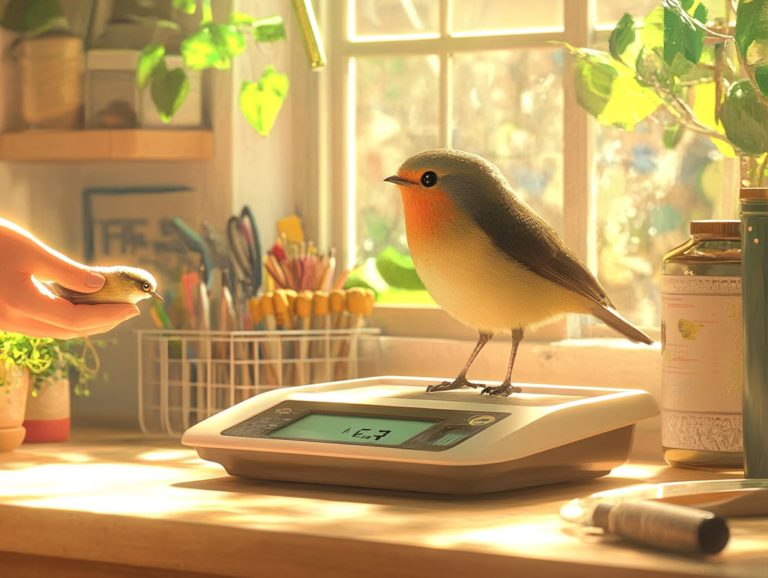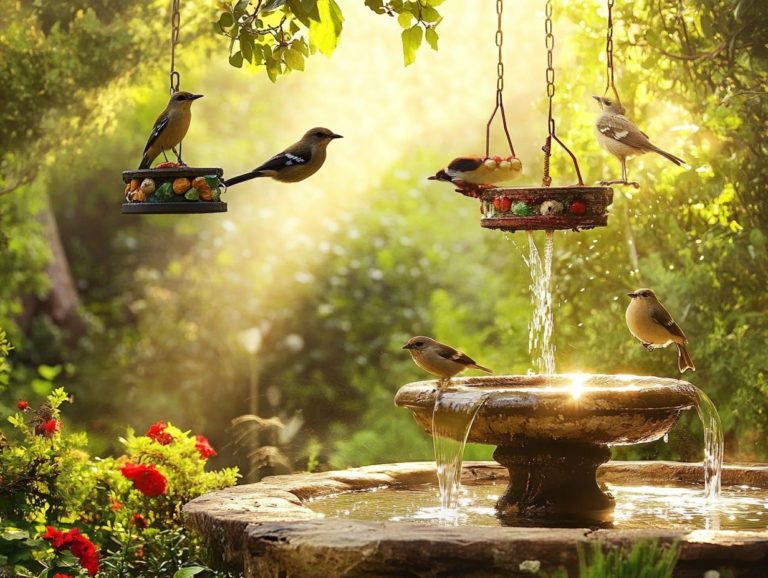Understanding the Role of Play in Bird Health
Birds, much like any cherished pets, flourish with engagement and interaction. Play is an essential element for their well-being.
This article delves into the importance of play for your feathered companions, emphasizing the physical and mental stimulation it offers.
From a variety of activities like flying, searching for food, and social interactions to recognizing the signs of a content bird, you ll discover how play enhances their lives and mitigates common health concerns.
You ll find practical tips on encouraging play in your bird, ensuring they enjoy a joyful and vibrant life.
Contents
- Key Takeaways:
- The Importance of Play for Birds
- Types of Play for Birds
- Signs of a Happy and Healthy Bird
- Common Health Issues in Birds
- Encouraging Play in Your Bird
- Tips and Tricks for Engaging Your Bird in Play
- Frequently Asked Questions
- What is the role of play in bird health?
- How does play benefit a bird’s physical health?
- What impact does play have on a bird’s mental health?
- Can play reduce stress in birds?
- What are some examples of play for birds?
- How Much Playtime Does a Bird Need?
Key Takeaways:
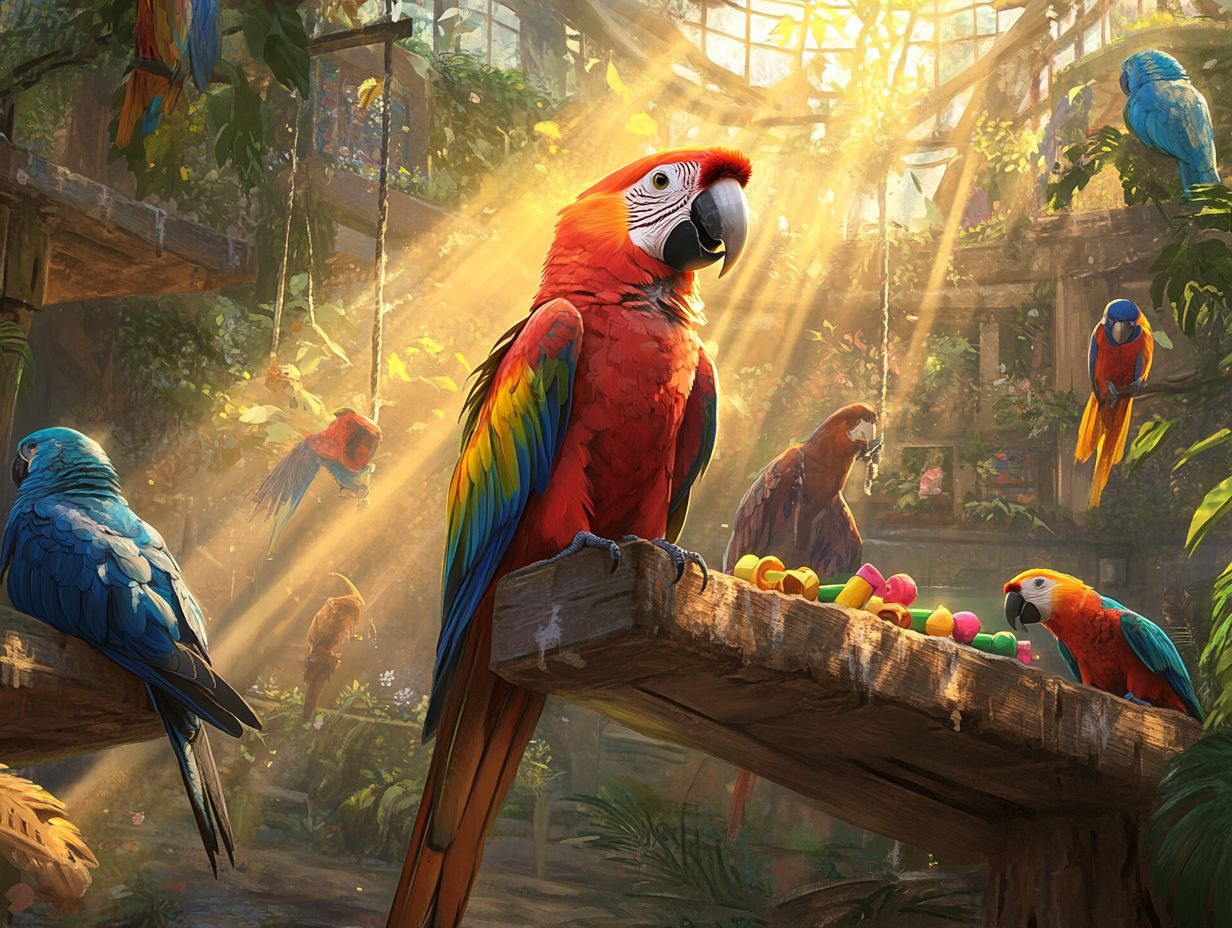
- Engaging in play is crucial for the overall health and well-being of birds, providing both physical and mental stimulation.
- Different types of play, such as flying and social interactions, are important for a bird’s natural behaviors and development.
- A happy and healthy bird will exhibit behaviors such as singing, preening, and exploring. Play can also help prevent and treat common health issues in birds.
The Importance of Play for Birds
Play serves as a vital component in the development of young birds, profoundly shaping their behavior, cognitive abilities (which means how well they think) and emotional intelligence (which means how well they feel), as highlighted by experts such as Rebecca K. O’Connor and Gisela Kaplan.
By engaging in diverse forms of play, you can significantly support your birds’ social growth and emotional health. Avoiding play deprivation is crucial, as it can lead to behavioral problems.
Recognizing the importance of play in avian life is essential for you as a pet owner. It enables you to create enriched environments that enhance your birds overall well-being.
Physical and Mental Stimulation
Physical fitness and mental stimulation are essential for your bird’s overall health. A variety of play experiences promotes lifelong learning and problem-solving skills.
When you engage your feathered friend in enriching activities, you’re not just keeping them physically active; you’re also sharpening their cognitive functions and enhancing their emotional well-being. For instance, interactive games like foraging puzzles challenge their problem-solving abilities, while teaching them to manipulate objects engages their tactile senses.
Providing safe, supervised access to diverse environments can spark their curiosity and encourage exercise. Incorporating hanging toys, mirrors, and even ladder mazes into their playtime can stimulate both their minds and bodies, making playtime an essential part of their daily routine.
Types of Play for Birds
Bird play can be elegantly divided into flying and searching for food activities, social play, object play, and solo play. Each category presents unique opportunities for bonding and contributes significantly to their emotional well-being.
Flying and Searching for Food Activities
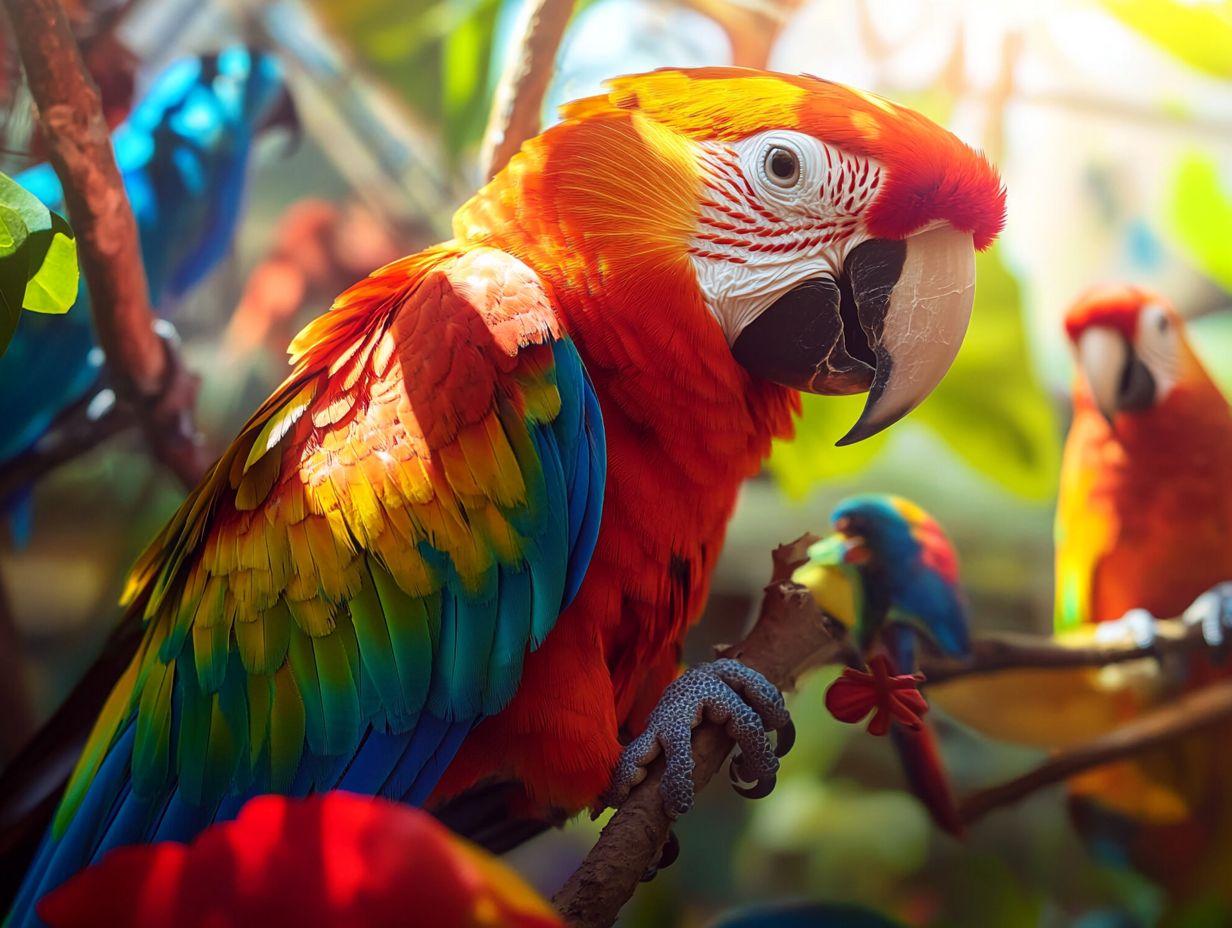
Flying activities, like short flight exercises, and searching for food behaviors, such as scavenging for treats, are crucial for enhancing cognitive skills and emotional intelligence in birds.
These activities do more than just engage their minds; they promote physical fitness and agility, significantly contributing to their overall well-being. By incorporating these playful routines, you facilitate a sense of exploration and joy, allowing your pet birds to express their natural instincts.
To weave these enriching experiences into their daily lives, create a safe space for flight, introduce varied perches, and use foraging toys filled with healthy snacks. In doing so, your birds will relish the excitement of flight while savoring the satisfaction of finding food, ultimately leading to happier and healthier lives.
Start playing with your bird today!
Social Interactions
Social interactions among birds provide bonding opportunities for you to witness. They also enhance their emotional well-being, making these interactions a vital aspect of their play preferences.
These interactions can lead to improved thinking skills. Engaging with others requires problem-solving figuring out how to get a toy to move and adaptability. Activities like aerial chases, synchronized fluttering, and group foraging are not just play; they foster communication and teamwork within the flock.
For instance, when you observe a group of parrots in a spirited game of tug-of-war with a toy, you ll see how they strengthen their physical coordination. At the same time, they deepen their social bonds, highlighting the importance of collaboration and shared experiences.
Through these playful encounters, birds navigate their environments more effectively. This ultimately contributes to their overall health and happiness.
Signs of a Happy and Healthy Bird
Recognizing the signs of a happy and healthy bird requires keen observation of behaviors that reflect emotional well-being and social development.
These indicators are nurtured through enriching play experiences, enhancing their overall quality of life.
Behaviors to Look Out For
Certain behaviors, such as your bird s active engagement in play, signal its emotional intelligence and overall happiness.
When your feathered friend flutters about with excitement or chirps in response to your voice, it s a clear sign of its readiness to bond with you. Observing your companion during playtime can unveil joyful behaviors, like flipping upside down or mimicking sounds. These indicate immense contentment.
To nurture these charming interactions, consider incorporating toys that spark problem-solving and exploration. Schedule regular play sessions that allow your bird to express itself freely. Using treats as positive reinforcement can significantly boost its confidence and eagerness to engage.
Common Health Issues in Birds
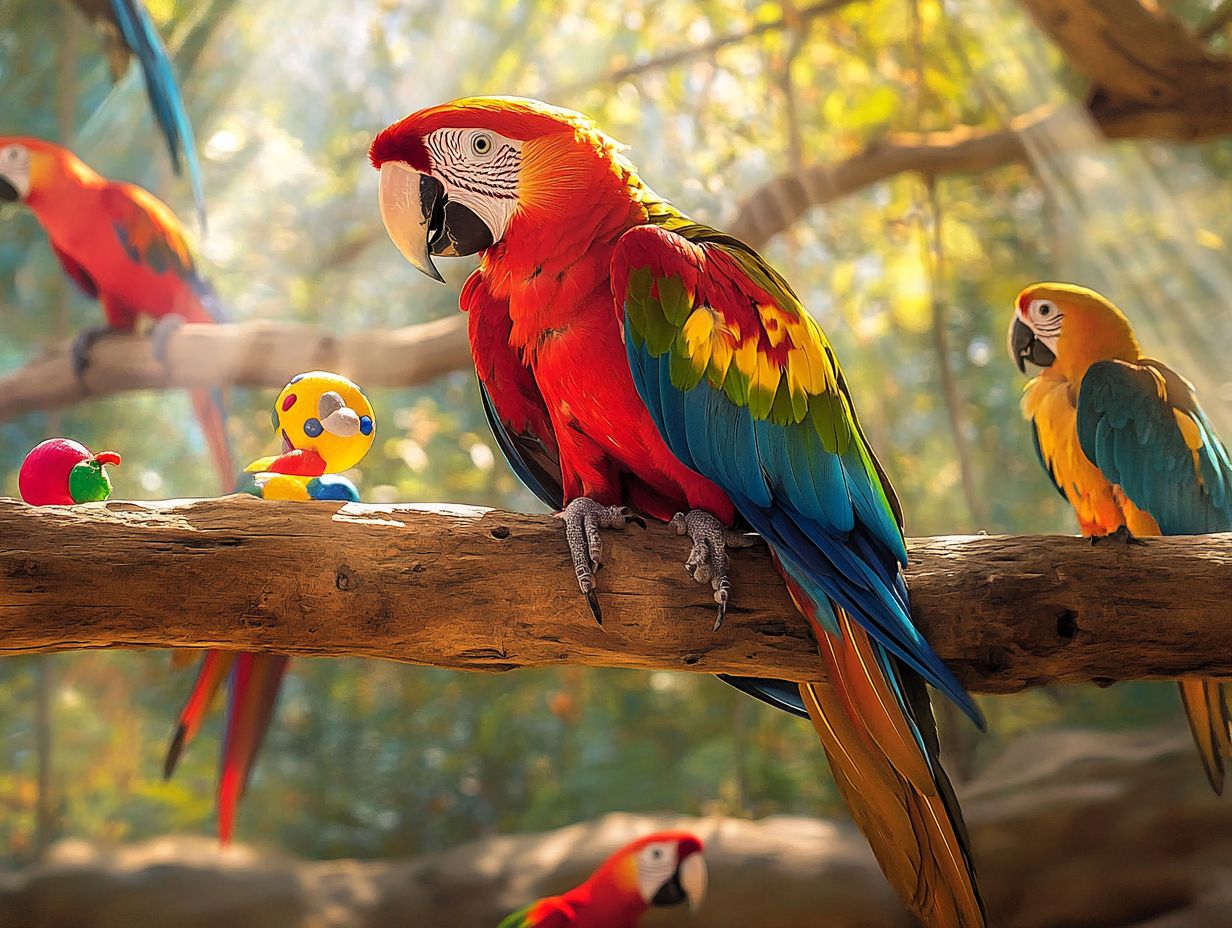
Common health issues in birds often arise from play deprivation. This can significantly impact their emotional well-being and overall wellness.
It s crucial to pay attention to their dietary requirements and ensure they have ample opportunities for play and enrichment.
How Play Can Help Prevent and Treat These Issues
Engaging in regular play is a powerful strategy to prevent and treat common health issues in your birds. This positively influences their emotional well-being and enhances their cognitive abilities, while also considering the importance of understanding the role of probiotics for birds.
Play is not just fun; it s essential for their health. Whether through interactive toys, social games with fellow birds, or enriching their environment, different forms of play can significantly lower stress and anxiety.
When your birds partake in playful activities, they become less susceptible to behavioral problems and health concerns like feather plucking or obesity. Regular playtime fosters strong social bonds and encourages exploration, contributing to their overall resilience and well-being.
Thus, making play an essential component of their care is not just a choice it s a responsibility!
Encouraging Play in Your Bird
To truly encourage play in your bird, leveraging effective tips and tricks can greatly elevate their engagement in interactive games and exploration activities.
Tips and Tricks for Engaging Your Bird in Play
Engaging your bird in play can lead to exciting toy exploration. These activities help develop effective play techniques.
Incorporating interactive toys and games into your routine significantly enriches your bird’s life. This not only stimulates their instincts but also encourages their problem-solving skills.
Participating in playtime strengthens the bond between you and your pet. It creates a profound sense of trust and companionship.
As your bird enjoys social interaction, they learn to communicate better. This leads to a deeper understanding and a stronger emotional connection.
Frequently Asked Questions
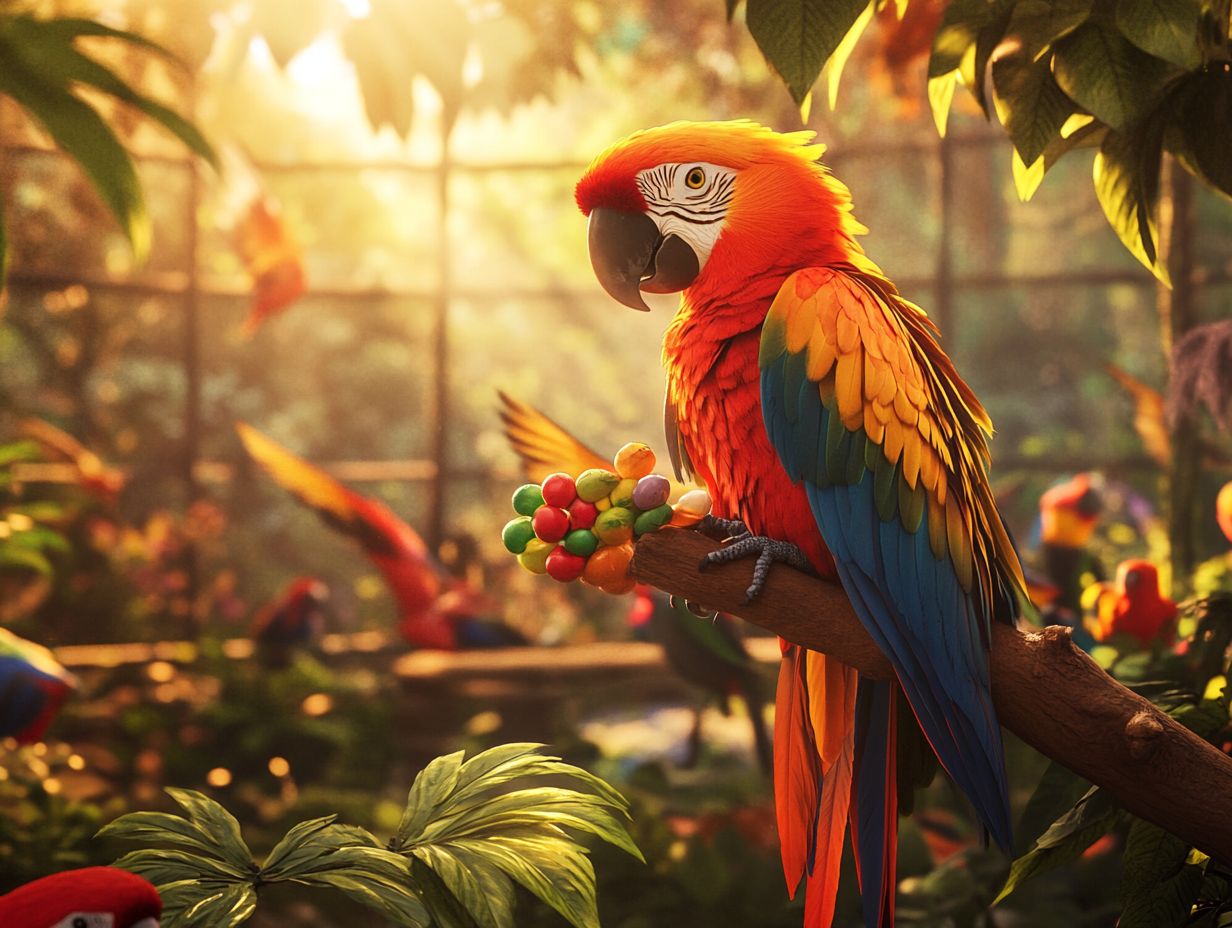
What is the role of play in bird health?
Play is crucial for bird health. It promotes their physical, mental, and emotional well-being.
Playing helps birds develop coordination, agility, and muscle strength. It also stimulates their brains and reduces stress, leading to happier birds.
How does play benefit a bird’s physical health?
Play develops strong muscles and improves balance and coordination. It helps maintain a healthy weight and promotes cardiovascular health.
What impact does play have on a bird’s mental health?
Play stimulates a bird’s brain and prevents boredom. Engaging in different types of play enhances their problem-solving and decision-making skills.
Can play reduce stress in birds?
Yes! Play effectively reduces stress in birds. It helps them release energy, promotes relaxation, and distracts them from stressful situations.
What are some examples of play for birds?
Birds enjoy various play activities like swinging on perches and playing with toys. They also mimic sounds and interact with their owners.
Natural behaviors such as flying, foraging, and socializing are essential for their well-being. These activities encourage healthy social interactions and physical fitness.
How Much Playtime Does a Bird Need?
Birds need different amounts of playtime based on their species and age. Generally, larger birds should have 2-4 hours of play each day, while smaller birds need 1-2 hours.
Watch your bird closely. Adjust their playtime based on how they behave and what they enjoy.

